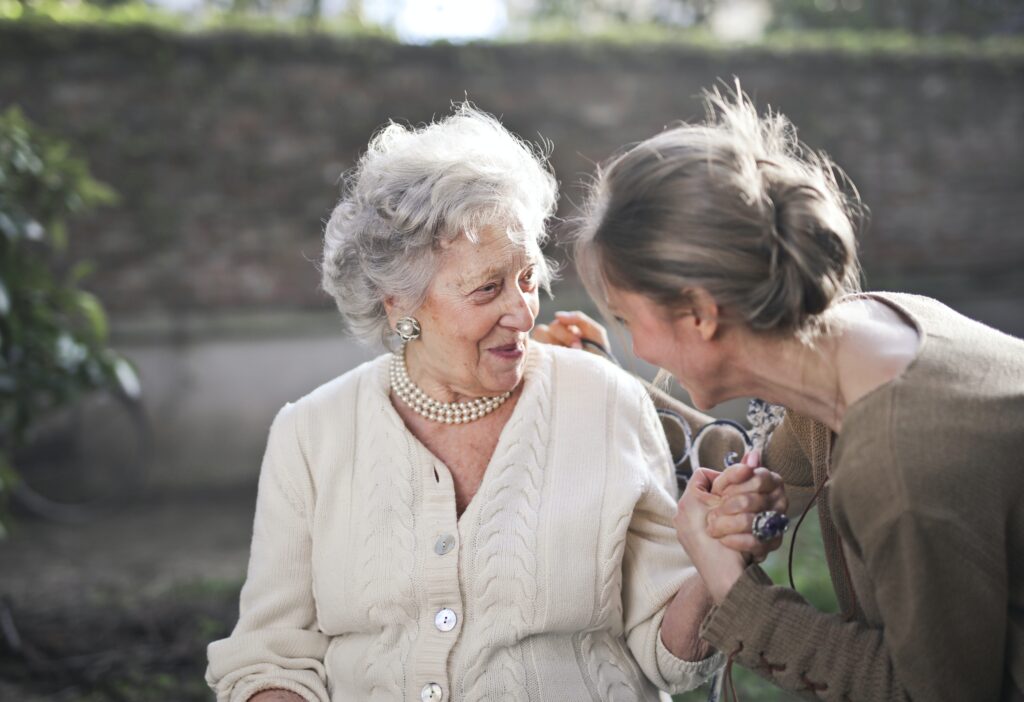How Important is Social Integration With Alzheimer’s and other Dementias
Alzheimer’s disease (AD) and other dementias involve a progressive decline that impairs a person’s cognitive functioning, causing memory loss, poor judgment and decision-making, confusion, and problem-solving difficulties, among other things.

However, Alzheimer’s disease also has a social impact because it frequently causes anxiety, depression, aggressive behavior, withdrawal, and isolation. Emotional distress linked to dementia can make it difficult for a person to engage in social activities and sustain meaningful relationships. Fear, nervousness, sadness, or anger make it difficult to be sociable and engage with others.
How to Manage Emotional Well-Being When Diagnosed with Alzheimer's
Dementia is an illness, not a natural part of the aging process. AD patients have difficulty paying attention and communicating with others. A lot of the time, dementia causes changes in a person’s behavior and mood, which can make it hard for them to interact with their family and caregivers.
Dementia might damage your reasoning and decision-making abilities. You may also have a hard time remembering things that happened in the past, get confused, or have trouble communicating in the later stages of the disease.
A diagnosis of dementia, whether Alzheimer’s or another type, can be devastating. Learning that you have dementia can create a great deal of stress and anxiety because you perceive that cognitive impairment will substantially impact the quality of your life.
Nonetheless, remaining socially active may help you regain self-confidence and a positive outlook. As a result, social integration may even contribute to a better prognosis for Alzheimer’s disease.
By taking the steps outlined below, you will be able to cope with a diagnosis, adjust to change, and go on with your life.
Get Informed
Learning about your diagnosis may cause you to experience grief at the loss of the life you once knew. You may feel alone, stigmatized, or angry. However, it is critical to learn as much as you can about the type of dementia you’ve been diagnosed with so that you can prepare and plan ahead of time.
Rethink Your Identity
Receiving a diagnosis of Alzheimer’s disease or another kind of dementia is a life-changing event that may be quite distressing for both you and your family.
But, keep in mind that dementia doesn’t define who you are as a person. You are still someone’s parent, spouse, sibling, and friend. So, stick to those roles that help you remain the person you were before the diagnosis.
Reach Out to Others
An awareness that dementia isolates you from normal daily activities and other people can lead to worry, despair, self-esteem concerns, and social isolation. You may isolate yourself from family and friends because you don’t want to be a burden.
Although it is reasonable to be anxious, your diagnosis should not be used to justify isolating yourself. Love and support from loved ones can have a significant impact on your emotions, health, and well-being through challenging times.
So, stay connected with family and friends, as maintaining positive relationships and engaging in social activities can:
- Improve your mood
- Relieve stress
- Distract you from negative thoughts
- Alleviate anxiety and depression
- Help you cope with grief
- Provide company and support
- Focus on positive aspects of your life
- Meet people
- Improve your self-esteem and confidence
- Learn about other dementia patients’ experiences
- Reduce or postpone the onset of cognitive decline
Caring for a Family Member with Alzheimer's and other Dementias
Caring for someone with Alzheimer’s disease or another kind of dementia can be a life-altering experience. Your loved one with AD/D may become anxious, irritable, or despondent. They may feel confused, isolated, overwhelmed, and experience sudden mood swings.
There is, however, a lot of evidence that physical exercise, intellectual stimulation, and social interaction can improve cognition, everyday functioning, and general quality of life.
Therefore, it is important to ensure social integration, providing opportunities for your loved one with AD/D to socialize and feel appreciated.
Social involvement has been shown to dramatically reduce stress, help avoid feelings of loneliness and isolation, and increase mood. As a result, family and friends of Alzheimer’s disease patients must maintain a good atmosphere and ensure their social engagement despite dementia.
Studies also show that a positive social atmosphere and social involvement can improve memory, attention, and decision-making abilities in people with AD/D.
By maintaining social interaction, your loved one with dementia can stay involved and engaged.
Anxiety and depression are frequently associated with dementia. In addition, people’s social interactions grow more limited as they age. As a result, it’s important to keep your AD/D family member out and about so that they can meet new people because friendships in late adulthood can improve health and well-being more than family bonds, according to research.
Furthermore, studies demonstrate that friendships among the elderly can reduce the risk of dementia or postpone its progression. Seniors with a strong social network perform better on memory tests and other cognitive assessments.
Summary
Receiving a dementia diagnosis can be highly stressful for both the sufferer and their loved ones. Social support is critical in assisting a person with dementia to cope with their diagnosis and maintain a positive outlook.
Social involvement keeps the brain active, which helps improve memory and thinking skills and slow down or stop cognitive decline.
Socialization can also be an excellent way for people with dementia to meet new people and avoid feelings of loneliness and despair.

Keeping your loved one with Alzheimer’s or another type of dementia can be challenging. But you are not alone.
According to the National Institutes of Health, Alzheimer’s disease affects more than 5 million individuals in the United States and their families. Reach out for help. There are a variety of tools available to help people with Alzheimer’s disease, and their caregivers and family members understand the condition, manage its symptoms, and support a person with AD/D to keep up emotional well-being and happiness.


Everything is very open with a really clear clarification of the issues. It was truly informative. Your site is very helpful. Many thanks for sharing!
I was extremely pleased to discover this site. I wanted to thank you for ones time for this particularly wonderful read!! I definitely loved every little bit of it and I have you bookmarked to see new stuff on your blog.
Your writing style is engaging and your ideas are well-articulated. This is a great piece of content that is both informative and enjoyable to read.
Thank you for sharing your insights and expertise on this topic. Your article is well-researched and provides valuable information for readers.
Very nice post. I just stumbled upon your blog and wanted to say that I’ve really enjoyed browsing your blog posts. In any case I’ll be subscribing to your feed and I hope you write again soon!
Thanks for sharing. I read many of your blog posts, cool, your blog is very good.